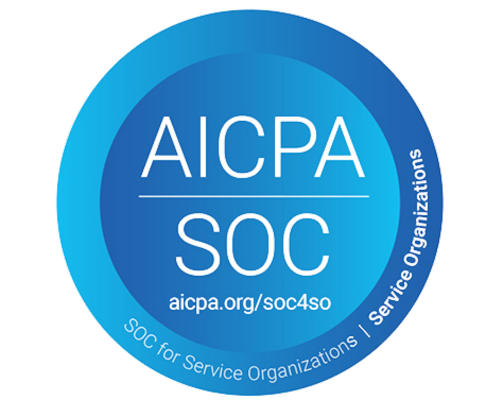How HR Teams Can Effectively Manage Unemployment Claims: Who Is and Isn’t Eligible for Benefits

As your company seeks effective ways to manage unemployment claims and keep state unemployment tax (SUTA) rates low, your HR team must have a firm grasp of the unemployment claims process.
Throughout the blog series, “How HR Teams Can Effectively Manage Unemployment Claims,” we’re taking a deep dive into the unemployment claims process using insights from a recent
HRlogics webinar.
In
our last post,
HRlogics UCM’s
Josh Kendall, Chief Operating Officer, and
Joe Turner, VP of Unemployment Operations, discussed unemployment basics, like what it is and how eligibility is determined. Here, we’ll focus on who is and isn’t eligible for unemployment benefits and what qualifies as “willful misconduct” under federal and state law.
Who Is Eligible for Unemployment Benefits?
The guidelines passed down from the United States Department of Labor provide two main criteria for an individual to be eligible for unemployment benefits.
- An individual must be unemployed through no fault of their own.
- The individual also has to show that they are able, available, and actively seeking work.
“The thought that somebody just gets to sit around and draw unemployment benefits, it's not really true, at least to some degree,” says Kendall. “They all have to file a weekly claim affirming that they remain unemployed, and they must show that they are actively seeking new employment. The individual states get to set the specific requirements, but this is the general federal guideline.”
“Since the pandemic, there's been a lot of scrutiny on the state unemployment systems to make sure that individuals are meeting that second requirement, that they are showing they are able, available, and actively seeking work,” adds Kendall “There are also some other registration requirements that vary by state, but these are the two primary requirements across the board.”
Who Is Not Eligible for Unemployment Benefits?
To start, an individual who's been discharged through an act of misconduct is not eligible for unemployment benefits. Second, any individual who voluntarily resigned their position without good cause.
Turner explains that most states continue that definition to include an individual who quit with good cause related to the employment. For example, this could apply to someone who quit because of a hostile or unsafe work environment or someone who's had a significant change in their job duties, such as reduction in pay, hours, or even a transfer to another work location.
Any of those examples could be considered good cause for having voluntarily quit their job and, depending on the individual state statutes, those individuals could be considered unemployed through no fault of their own, Turner adds.
“There's also some situations where if somebody quits because a doctor advises them to due to a medical condition, but that one becomes a little bit more of a gray area,” Turner says. “Some states will still stand by that provision — that it's not work related and not pay out the benefits — but more and more states have gone to saying that ‘this situation is good personal cause for having quit your job, but we're not going to charge the employer’s unemployment tax account; thus not having a direct impact on their tax rate.”
Turner adds that some states out there still do it a little differently, and they will say that having quit because of a doctor's advice is “good cause,” and the state will charge the employer’s account. “So again, the state agencies always have the opportunity to interpret the law differently,” he adds.
What Is Wilful Misconduct?
Going back to the discharge situation, Kendall explains that when somebody is discharged, the state is measuring whether that person was discharged for an act of misconduct. Misconduct is defined for unemployment purposes as a willful act that disregards the employer’s best interest.
“This could be things like a violation of a known company policy, insubordination, or potentially threatening or violent behavior,” he adds. “One of the the key factors to keep in mind is if the state is looking at whether there was an action within the claimant's control that caused their discharge. So in contrast to those examples, that could be considered misconduct.”
However, there are other instances that can kick start an unemployment claim, not due to misconduct. For example, if business is slow and you reduce an employee's hours even though they continue to work, they may be eligible for partial unemployment because they're involuntarily underemployed due to a lack of available work.
Turner reiterates that each state has its own calculations, but ultimately the employee’s hours have to be cut back fairly significantly before they're able to draw that partial unemployment check.
Sometimes it's important to note that employees always have the right to file for unemployment benefits, even if you feel very strongly that they won't be eligible. You should never tell an employee they can't file, or include waiving the right to file for unemployment benefits as part of a separation agreement.
An employee cannot agree to waive their right to file for unemployment. It could void your separation agreement in total, just the particular section that included that verbiage. Or in some states, it actually puts the employer in jeopardy of being guilty of a misdemeanor.
Does This Discharge Situation Qualify As ‘Wilful Misconduct’?
Let's take a situation where you hire somebody for a sales position and they're given a quota that they have to meet every month or there will be disciplinary actions. The employee comes in; they do their very best to meet the requirements of the position. They're making the required number of calls, but they just aren't able to meet the requirements of the position.
You follow your disciplinary actions; you give them a verbal, a written, and a final warning; and you terminate them while doing everything within your power to give them the ability to do the job. They just aren't cut out for the position.
You let them go; they go file an unemployment claim, and that person typically is going to be found eligible for benefits because the state's going to say that was not an act of willful misconduct on their part.
Keep in mind, was there something within their control, something that was a willful action on their part? If they do their very best and just aren't able to meet the requirements of the position, they're typically going to be eligible for benefits.
Your organization should make every effort to ensure employees can meet the requirements of their jobs, whether that’s through accommodations, increased training, or performance improvement plans.
Terminating employees should always be a last resort unless there is wilful misconduct. In this case, there may be instances where you disagree with the employee’s request for unemployment benefits, and in our next post,
we’ll discuss how to handle the unemployment appeals process.
Can't wait for the next blog in this series?
Watch the full webinar here.
Effectively Manage Your Company’s Unemployment Claims with HRlogics
Let HRlogics UCM (Unemployment Cost Management) take on the administrative burden of managing unemployment insurance claims. Whether you are looking for full-service unemployment claims management — offering a hands-on approach with expert guidance — or looking for self-service software for in-house efficiency, employers gain a reliable partner in the unemployment process.





